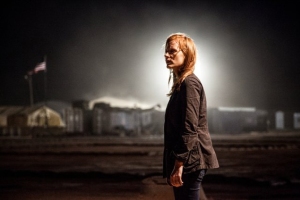 On September 2011 I was standing on the streets of downtown Manhattan watching the Twin Towers fall. It was a highly emotional day that will live in the memory of anyone who happened to be there, not least because anyone with a brain cell could see what all this would lead too.
On September 2011 I was standing on the streets of downtown Manhattan watching the Twin Towers fall. It was a highly emotional day that will live in the memory of anyone who happened to be there, not least because anyone with a brain cell could see what all this would lead too.
More patriotism, more jingoism and more armed response, though at that time no one was envisioning not one war but two as a result of the attack.
From books like the ‘The Looming Tower’ by Lawrence Wright to novels like the ‘Falling Man’ by Don Delillo to documentaries like ‘Standard Operating Procedure’, the attack and the wars it led too have brought us some fascinating and thought provoking art.
‘Zero Dark Thirty’ is the latest addition to the cannon and perhaps the most controversial of any of them.
As you have probably read US Senators, including torture victim John McCain, have written to Sony complaining about the film for its depiction of torture.
 Having watched the film last week I can see their point. The problem to me is that Kathryn Bigelow is a brilliant action director.
Having watched the film last week I can see their point. The problem to me is that Kathryn Bigelow is a brilliant action director.
She’s proved this time and time again in films like ‘The Hurt Locker’ and ‘Point Break.’
However, this story also requires something a little more cerebral. Something you get for example in a series like ‘Homeland’ where people’s motivations are revealed and the drama comes from tension between characters as well as pure action.
If we look at another investigative drama ‘All the President’s Men’ we see how director Alan Pakula, who has very little action to speak of, still manages to make the mundanity of the search riveting.
Zero Dark Thirty’s high points by contrast are pretty much exclusively the action scenes and by extension the torture scenes. These rely on the same build up of tension as the invasion of the compound, as we wait to see what pain will be inflicted on the victims.
Showing torture may not be to everyone’s taste but it still is necessary to show, as it undoubtedly happened during the search of Bin Laden. To not show it would be to ‘whitewash’ the hunt.
What is strange is that nowhere in the film is there any discussion of the rights or wrongs of such actions. Surely even if you concluded that you believed in torture you’d still have a conversation discussing the morality of the action?
I can’t believe that viewers would have found discussions of the rights and wrongs of torture boring. Without such scenes we are left feeling that torture is OK and essential to get the information you need.
In the end their absence reduces the film to a gripping but essentially empty thriller.
